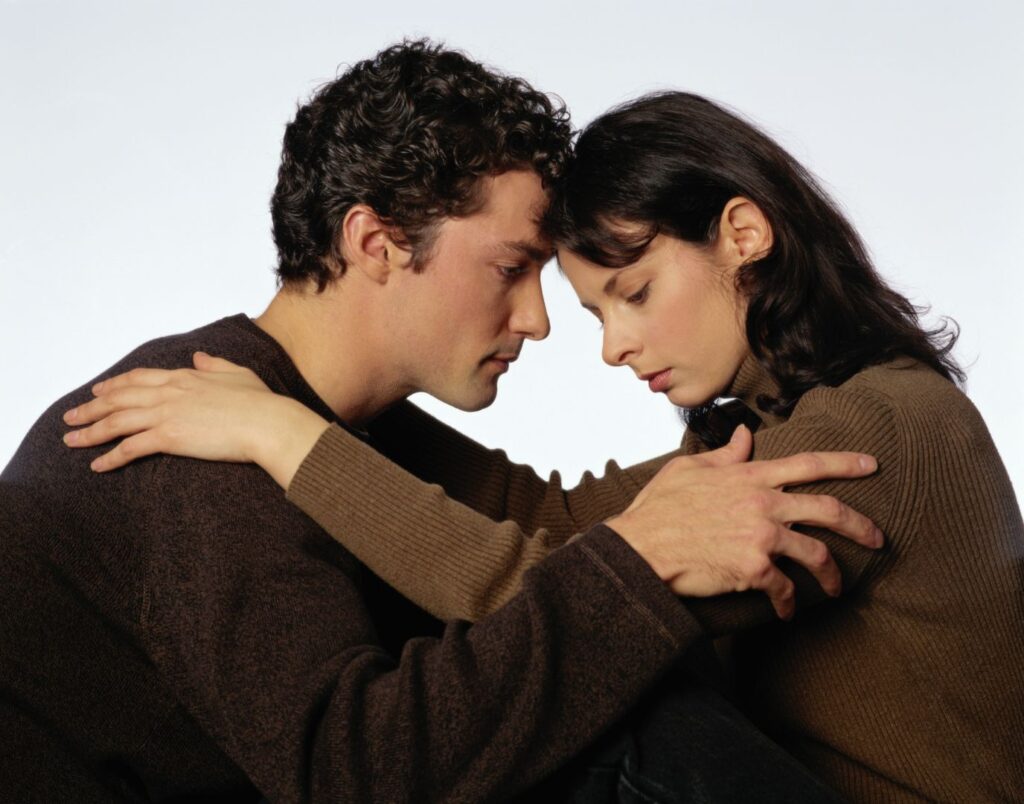It’s quite common for couple therapy and trauma therapy to be offered as separate services. It’s not very common to see trauma therapy for couples as an option for services. Is that even possible? Can it even be done effectively? The answer is YES! Here are a few things to consider if you want to do trauma therapy as a couple:
Therapist Qualifications:
For this work to be done safely and effectively, the therapist that you choose needs to have two areas of specialty: couples and trauma. Not every therapist can do couple work, and not every couple therapist can do trauma work. In order to figure out which therapist might be a good fit for you, you can look for someone who has specific training for both areas. Here is what this looks like:
Couple Therapy
A good couple therapist will have specialty training in addition to their master degree. Common couple therapy approaches include Emotion Focused Therapy (EFT), Gottman Therapy, the Psychobiological Approach to Couple Therapy (PACT), and other approaches like Relational Life Therapy (RLT) or Imago. The bottom line is that you want to find someone who has invested in getting additional training and consultation on how to provide couple therapy since it is so different than providing services to individuals. If you’re not sure if a therapist that you’re considering has these qualifications, you can always ask them about what training or consultation that they have received to specialize in this area.
Trauma Therapy
As with couple therapy, a competent trauma therapist supports their specialization with additional training and consultation. This is especially important with trauma work because it can look very different with each person, and a lack of training in this area can result in more distress. Some common trauma approaches include Eye Movement Desensitization and Reprocessing (EMDR), Sensorimotor Psychotherapy (SP), Somatic Experiencing (SE), Internal Family Systems (IFS), and other approaches such as Trauma Focused Cognitive Behavior Therapy (TFCBT). Of course, if you’re not sure that the therapist you are considering is qualified to treat trauma, it’s perfectly okay for you to ask what specialty training they have received to support providing these services.

How Can Trauma Therapy for Couples Help?
Since trauma uproots safety and security in relationships, trauma therapy can help couples to create a baseline of reality, agreements on safety and sensitivity, and a sense of connection with each other. The goal is to establish a way of functioning that feels more secure and more metabolized than trauma has given the opportunity for the couple to reach on their own. Many couples have never had the chance to enjoy all of the wonderful things that intimate relationship can provide because of how trauma negatively impacts vulnerability, trust, and intimacy. Trauma informed couple therapy holds this at the forefront of treatment and is guided by the couple’s pacing, needs, capacities, and limitations so that both partners feel respected in the process. Ultimately, trauma therapy can guide couples out of functioning within survival mode and into calm connectedness.
Common Traumas That Couples May See a Trauma Therapist For:
Trauma isn’t necessarily what happened to you; rather, it’s how an overwhelming experience has been stored in the body and continues to impact you day-to-day long after it’s over. Given this, there are many situations that can be traumatic for couples. Here are a few:
- Betrayal: this can include infidelity, financial betrayals, or any withholding of information that would have otherwise changed everything if disclosed. Betrayal causes PTSD-like symptoms for approximately one year after disclosure and is among the most common traumas that couples face together.
- Loss: whether the loss of a parent, a child, or a pet, grief and loss often impacts the couple dynamic in transformative ways. If the loss is traumatic, the relationship can face an existential crisis, often forcing either partner into roles that challenge the integrity of the relationship.
- Childhood/Family of Origin Trauma: intimate relationships have a unique way of surfacing unresolved wounding. The reasoning behind this lies somewhere within how humans form emotional bonds and how the brain and nervous system function. The result is that people frequently repeat their earliest frameworks of vulnerable relationships within their adult intimate partnerships. This includes patterns, blind spots, and pain points. Couples can find themselves in the midst of very volatile interactions that repeat their childhood wounding as a result. In trauma focused couple therapy, these pain points and patterns are identified and the couple is supported towards healing their old wounds and replacing their default patterns with new ones that feel better for both partners.
- Divorce: Divorce is another common trauma that brings couples in for trauma therapy. The process of detachment in of itself is excruciating, to the point of being recognized by stress scales as one of the most stressful experiences that a person can go through. Even when divorce is amicable, it can still feel extremely traumatic, leaving the ex-partner or the relationship with a charge that has a lasting impact.
- Medical Trauma: medical challenges in of themselves can feel very powerless in addition to physical pain, inspiring a traumatic reaction. In couple relationships, medical issues can negatively impact intimacy, autonomy, and the relational power dynamic. Couple therapy that is sensitive to medical trauma can support adjusting the relational dynamic towards sensitivity of medical issues while maintaining secure functioning.
- Sexual Trauma: sexual trauma impacts couples on a very vulnerable level, regardless of whether either one or both partners have experienced it. Couples who have a history of sexual abuse or have experienced sexual missattunement in their relationship can feel very fearful, insecure, and withdrawn when it comes to sexual intimacy. This can impact the felt sense of safety in the relationship, as well as how the couple builds trust and connection and handles vulnerability with each other.
- Religious Trauma: whether either partner has experienced harmful religious ideologies, or whether a couple has shared a faith and one partner is transitioning out, religious trauma can certainly destabilize a couple’s shared reality and sense of vision. Whereas prior religious harm can impact values and adaptive trauma responses, varying religious identities can feel like the rules of the game have changed all of the sudden. Either instance shakes the reality of the couple and often produces disorientation, mistrust, grief, and a sense of betrayal.
- Domestic Violence: this presenting issue comes with a caveat: in order to do good work if you have experienced domestic violence in your relationship together, the violence has to have stopped. It absolutely cannot continue. In fact, couple therapy with active violence can make things worse and is not recommended. With that said, if you as a couple have experienced violence with each other in the past and want to heal from this, it is likely that trauma work will focus on stabilization and resourcing to ensure safety, first and foremost; otherwise, the power dynamics of the relationship, as well as how power is managed in the relationship will need to be investigated and restructured to serve both partners well and allow for safety to be built.
- Disaster Trauma: experiencing disasters such as fires, floods, or even COVID-19 can certainly shake a sense of safety. Couples who experience disasters together often present with PTSD symptoms together. In the midst of devastating loss, this can feel additionally isolating, burdensome, and unsafe. Couple therapy for disaster trauma can help with drawing support from each other in the midst of chaos and finding grounding and stability again after a shocking experience.
What Does Trauma Therapy for Couples Look Like?
Trauma therapy with couples will likely feel a lot slower and focus more on processing and orienting towards safety. Stabilization is key, so a trauma therapist who works with couples will spend a lot of time supporting the couple as they resource skills, connections, and activities that lead to a greater sense of security and calmness, both within and outside of the relationship. Here are several focus points for couples doing trauma work together:
- Stabilization: safety and security is the highest priority, especially at the beginning of trauma work. The first order of focus in trauma work is to make sure that the couple is practically and emotionally safe, stable, and well resourced before diving into unpacking trauma. This can include safety plans to follow as a couple, resourcing practical skills, regaining a sense of control, and expanding emotional capacity for both stress and vulnerable connection.
- Repair: most couples do not have a reliable strategy to repair conflict when it occurs. A lack of strategy surrounding resolution can lead to more resentment in the relationship, causing disconnection and withdraw from each other. When trauma is in the background of the relationship, not having quick, effective, and reliable repair can worsen feelings of mistrust and unsafety.
- Negotiation: when trauma triggers come up, how do you want to handle them as a couple? What are some ways that these moments can be handled together that feel secure for both partners? Negotiating secure practices and agreements of how to manage trauma in the relationship with sensitivity is key to building safety and trust within the partnership.
- Grief Work: Grief is a huge part of working through trauma. It has a specific role in recognizing what should have been and wasn’t or what should NOT have been but was. Grief also plays a large part in recognizing that the threat is over, further facilitating reorientation to the present moment and recognizing current resources and supports that may not have been available at the time of the trauma. When this is done in the context of a couple relationship, it holds extra power because there is another witness to validate and hold the pain, as well as facilitate support in the present moment.
- Communication: trauma already has a way of stealing your words. In couple relationships, this can be extra stressful, especially when a lack of communication or escalated communication is causing tension between partners. Trauma focused couple therapy supports folks in developing strategies for regulated and effective communication so that this isn’t an additional obstacle in managing trauma together.
- Sharing Corrective Experiences: part of trauma work is to build trust in oneself, in the relationship, and in the future. A very effective way of doing this is to build corrective experiences together: showing up for each other well, consistently, and reliably in spaces where trauma has been experienced before. This closes the trauma loop over time and writes an addendum to the trauma chapter that leads to a way out of repetition. The new experiences become default and the brain learns that things are different now than they were when the trauma happened. Couples in particular have a beautiful way of providing corrective experiences for each other, especially in terms of safety, connection, and trust.
- Learning Sensitivity: sensitivity refers to a couple’s intimate knowledge and awareness of each other’s states of being. How well do you know each other? When there is trauma in the relationship, there is a deeper layer to sensitivity that either partner must exercise in order to take a secure stance within the relationship. Trauma focused couple therapy heavily focuses on training sensitivity in either partner to support adjustment, care, and kindness in the midst of managing trauma.

Key Reminders
It is important to choose a therapist with specialized training in both trauma and couple therapy for effective healing. Trauma therapy for couples emphasizes stabilization, safety, and mutual sensitivity, focusing on repairing trust and improving communication. Common traumas that couples face, such as betrayal, loss, and childhood wounds, require a slow, careful approach that prioritizes security and emotional capacity. Ultimately, trauma-informed therapy helps couples rebuild connection and trust by working through pain together and creating corrective, healing experiences.
Trauma therapy for couples can be highly effective when approached with the right therapeutic expertise. By working with a therapist who has specialized training in both areas, couples can address the profound impact trauma has on vulnerability, trust, and intimacy. The process focuses on stabilization, communication, repair, and creating safety within the relationship, enabling couples to heal old wounds and develop healthier patterns. With mutual support and sensitivity, couples can move from survival mode to a place of calm, connection, and security, ultimately transforming their relationship for the better.
Serendipity Psychotherapy is a psychotherapy practice that specializes in trauma recovery and couples therapy. Each client is unique, so services are approached with a sensitivity to cultural, contextual, relational, societal, and biological factors. As each client finds their power in healing one area of their lives, other areas tend to follow as a result, often without being purposefully sought after!
welcome to the blog
chandler, arizona couples therapist
couples
trauma
faqs
workshops

